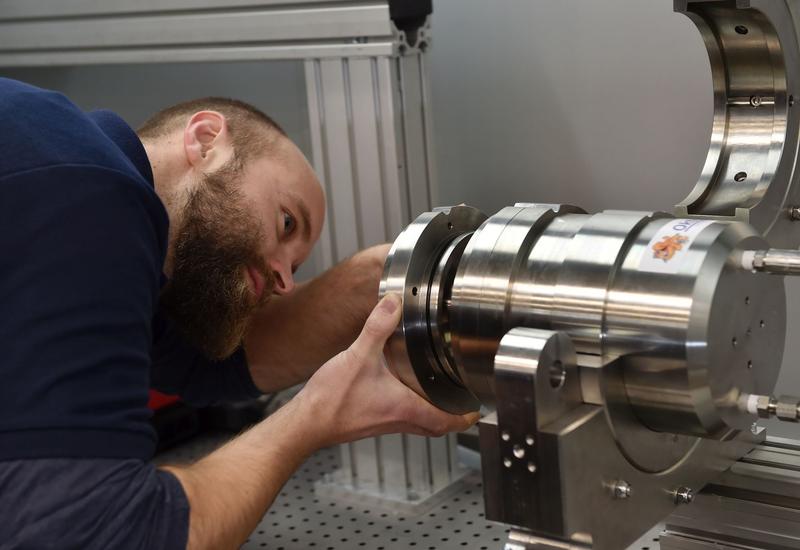

With the special pressure chamber at the LZH, laser material processing can be tested under deep-sea conditions.
Photo: LZH
With the pressure chamber of the LZH, a water depth of 6,500 meters can be simulated with a pressure of up to 650 bar.
The chamber is suitable for both freshwater and saltwater and can thus represent various application scenarios. The pressure chamber includes a special device in which the sample can be placed safely.
Watching the live process
In the pressure chamber two different viewing windows (25 mm and 80 mm) can be used. These allow to introduce laser radiation and to observe the process with a camera. Thus, the scientists can, for example, analyze the plasma formation on the surface of the sample.
This is interesting for the preparation of deep-sea work and measurements, as in the current ROBUST project at the LZH that focuses on the investigation of mineral resources on the seabed.
Pressurization of materials
Furthermore, the chamber can be used to examine different materials for their reaction to high pressures under water. Using high-speed camera technology, the LZH can record full HD video material at over 12,000 images per second and synchronize it with the pressure curve in the chamber.
https://www.lzh.de/en/publications/pressreleases/2016/locating-natural-resources… More infomation about ROBUST












